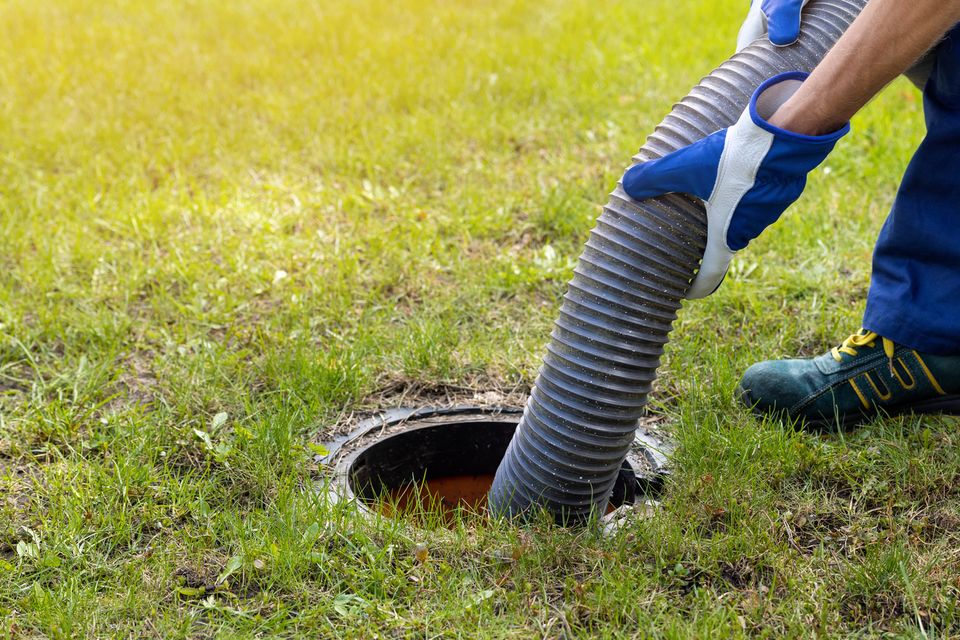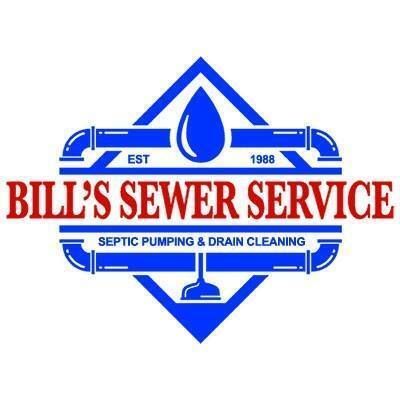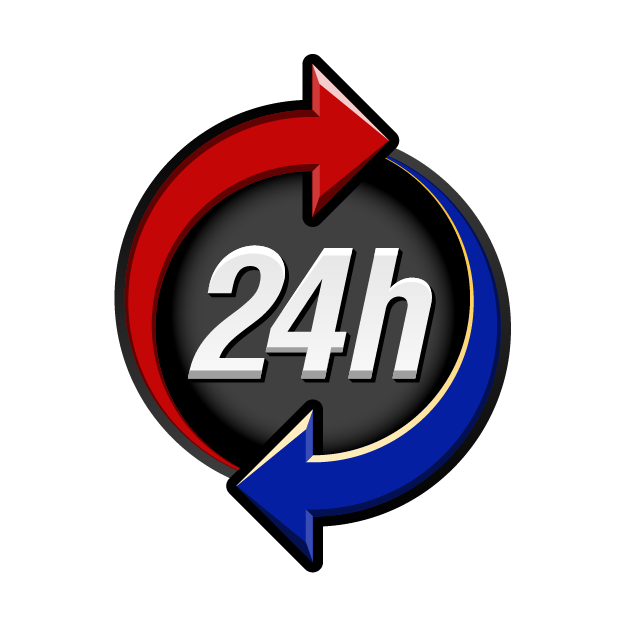
Your septic system is one of the most important and most misunderstood parts of your home. Because it’s buried underground and out of sight, many homeowners rely on “what they’ve heard” when it comes to septic system maintenance. Unfortunately, there are a lot of myths out there. Some are harmless, but others can lead to serious septic system damage, messy backups, or expensive repairs.
At Bill’s Sewer and Drain, we’ve worked with thousands of septic systems across Twin Falls and the Magic Valley. We’ve seen firsthand how believing in septic misconceptions can cost homeowners thousands of dollars. Let's take a look at the 7 most common myths about septic systems and go into explaining why they’re misleading. Of course, we will gladly show you what to do instead.
One of the most dangerous myths is that septic tanks take care of themselves. While the bacteria inside the tank do break down waste, solids still accumulate over time. Therefore, the first and most common myth is that you don’t need to pump your septic tank.
Why it’s wrong: Without regular septic tank pumping, these solids overflow into the drain field. This clogs the soil and can cause wastewater to back up into your home or bubble up in your yard.
The truth: Most septic tanks need pumping every 3–5 years, depending on household size, water usage, and tank capacity. A large family in a smaller home may need service more often, while a single person living alone may stretch longer between pumpings.
What to do: Keep records of your last pump date and schedule a professional inspection every few years. Prevention is always cheaper than repair.
Why it’s wrong: Additives may contain bacteria, enzymes, or chemicals that claim to dissolve solids. In reality, they often stir up solids and push them into the drain field where they don’t belong. This can cause clogs, contamination, and total septic system failure.
The truth: No additive can replace the need for septic pumping. In fact, the Environmental Protection Agency (EPA) warns against relying on them.
What to do: Skip the quick fixes and rely on tried-and-true maintenance, which is professional septic pumping and inspections. Contact Bill’s Sewer & Drain in Twin Falls, ID, to manage that for you!
Why it’s wrong: Wipes, feminine hygiene products, paper towels, diapers, and grease don’t break down like toilet paper. They can create stubborn clogs inside the tank or pipes. Even so-called “flushable wipes” don’t disintegrate quickly enough for septic systems.
The truth: The only things that belong in your septic system are human waste and septic-safe toilet paper.
What to do: Post a “no flush” rule in your bathrooms and scrape grease, fats, and food waste into the trash instead of the sink.
Why it’s wrong: Venting issues, minor clogs, or even wind patterns can sometimes cause temporary smells.
The truth: Strong septic odors do not mean it's failing. It may just mean it needs to be cleaned or repaired. Consistent, strong odors inside your home or near your drain field should not be ignored. They may signal a full tank, a leak, or a venting problem.
What to do: If odors persist for more than a day or two, call a septic professional at Bill’s Sewer & Drain. A quick inspection can identify whether it’s a small fix or a more serious problem.
Myth #5: “DIY Septic Maintenance Saves Money”
YouTube videos make septic maintenance look simple, but that’s misleading.
Why it’s wrong: Septic tanks contain harmful gases like methane and hydrogen sulfide, which can be deadly in confined spaces. Without the right equipment, trying to pump or repair a tank can be dangerous and often leads to costly mistakes.
The truth: Professional septic contractors have the training, safety equipment, and tools to do the job correctly. They are also professionally insured in case of an accident. Attempting DIY repairs may save a few dollars upfront, but could create thousands of dollars in damage.
What to do: Leave the digging, pumping, and diagnosing to trained professionals.
Why it’s wrong: Septic problems often develop slowly. By the time you notice slow drains or standing water in the yard, damage to the drain field may already be advanced.
The truth: A septic system can look “fine” on the surface while solids are silently building up inside the tank.
What to do: Schedule regular inspections every 1–3 years to catch hidden problems before they turn into emergencies.
Why it’s wrong: Septic inspections can reveal issues like tank cracks, high water levels, or root intrusion before they cause major damage. Without inspections, you may not notice until sewage backs up into your home.
The truth: Professional inspections are the best way to protect your investment.
What to do: Book an inspection every couple of years or when buying or selling a home with a septic system.
Your septic system is too important to risk on bad advice. Septic pumping, inspections, and smart usage are the keys to long-lasting systems. Don’t fall for the septic “shortcuts” that sound too good to be true, because they usually are.
Call Bill’s Sewer and Drain today at (208) 733-2607 to schedule your septic maintenance and avoid falling for costly myths.
At Bill’s Sewer and Drain, we’ve worked with thousands of septic systems across Twin Falls and the Magic Valley. We’ve seen firsthand how believing in septic misconceptions can cost homeowners thousands of dollars. Let's take a look at the 7 most common myths about septic systems and go into explaining why they’re misleading. Of course, we will gladly show you what to do instead.
Myth #1: “You Never Need to Pump Your Septic Tank”
One of the most dangerous myths is that septic tanks take care of themselves. While the bacteria inside the tank do break down waste, solids still accumulate over time. Therefore, the first and most common myth is that you don’t need to pump your septic tank.Why it’s wrong: Without regular septic tank pumping, these solids overflow into the drain field. This clogs the soil and can cause wastewater to back up into your home or bubble up in your yard.
The truth: Most septic tanks need pumping every 3–5 years, depending on household size, water usage, and tank capacity. A large family in a smaller home may need service more often, while a single person living alone may stretch longer between pumpings.
What to do: Keep records of your last pump date and schedule a professional inspection every few years. Prevention is always cheaper than repair.
Myth #2: “Septic Tank Additives Replace Pumping”
From hardware store shelves to late-night TV ads, you’ll see products that promise to “eliminate the need for pumping your septic tank.”Why it’s wrong: Additives may contain bacteria, enzymes, or chemicals that claim to dissolve solids. In reality, they often stir up solids and push them into the drain field where they don’t belong. This can cause clogs, contamination, and total septic system failure.
The truth: No additive can replace the need for septic pumping. In fact, the Environmental Protection Agency (EPA) warns against relying on them.
What to do: Skip the quick fixes and rely on tried-and-true maintenance, which is professional septic pumping and inspections. Contact Bill’s Sewer & Drain in Twin Falls, ID, to manage that for you!
Myth #3: “Septic Systems Can Handle Anything You Flush”
It’s tempting to treat your toilet like a trash can, especially with so many products labeled “flushable.”Why it’s wrong: Wipes, feminine hygiene products, paper towels, diapers, and grease don’t break down like toilet paper. They can create stubborn clogs inside the tank or pipes. Even so-called “flushable wipes” don’t disintegrate quickly enough for septic systems.
The truth: The only things that belong in your septic system are human waste and septic-safe toilet paper.
What to do: Post a “no flush” rule in your bathrooms and scrape grease, fats, and food waste into the trash instead of the sink.
Myth #4: “If You Smell Odors, Your Septic Tank Is Failing”
Septic odors are unpleasant and concerning, but they don’t always mean your system is failing.Why it’s wrong: Venting issues, minor clogs, or even wind patterns can sometimes cause temporary smells.
The truth: Strong septic odors do not mean it's failing. It may just mean it needs to be cleaned or repaired. Consistent, strong odors inside your home or near your drain field should not be ignored. They may signal a full tank, a leak, or a venting problem.
What to do: If odors persist for more than a day or two, call a septic professional at Bill’s Sewer & Drain. A quick inspection can identify whether it’s a small fix or a more serious problem.
Myth #5: “DIY Septic Maintenance Saves Money”
YouTube videos make septic maintenance look simple, but that’s misleading.
Why it’s wrong: Septic tanks contain harmful gases like methane and hydrogen sulfide, which can be deadly in confined spaces. Without the right equipment, trying to pump or repair a tank can be dangerous and often leads to costly mistakes.
The truth: Professional septic contractors have the training, safety equipment, and tools to do the job correctly. They are also professionally insured in case of an accident. Attempting DIY repairs may save a few dollars upfront, but could create thousands of dollars in damage.
What to do: Leave the digging, pumping, and diagnosing to trained professionals.
Myth #6: “If the Drains Are Working, the Septic System Is Fine”
Many homeowners assume that as long as sinks and toilets are draining, everything is okay underground.Why it’s wrong: Septic problems often develop slowly. By the time you notice slow drains or standing water in the yard, damage to the drain field may already be advanced.
The truth: A septic system can look “fine” on the surface while solids are silently building up inside the tank.
What to do: Schedule regular inspections every 1–3 years to catch hidden problems before they turn into emergencies.
Myth #7: “You Don’t Need Professional Septic Inspections”
Because septic systems are out of sight, they’re often out of mind. Skipping inspections may seem like a harmless way to save money, but it’s a costly gamble.Why it’s wrong: Septic inspections can reveal issues like tank cracks, high water levels, or root intrusion before they cause major damage. Without inspections, you may not notice until sewage backs up into your home.
The truth: Professional inspections are the best way to protect your investment.
What to do: Book an inspection every couple of years or when buying or selling a home with a septic system.
Why Septic System Myths Can Cost Thousands
Believing in these septic system myths can create real-world consequences:-
Drain field failure requiring full replacement, which can cost $10,000–$20,000 or more.
-
Sewage backups that damage flooring, walls, and personal belongings.
-
Health risks from exposure to untreated wastewater.
-
Legal fines if a failing system contaminates groundwater or neighboring properties.
Your septic system is too important to risk on bad advice. Septic pumping, inspections, and smart usage are the keys to long-lasting systems. Don’t fall for the septic “shortcuts” that sound too good to be true, because they usually are.
Call Bill’s Sewer and Drain for Septic Service in Twin Falls, ID
At Bill’s Sewer and Drain, we’ve been serving Twin Falls and the Magic Valley for decades. Our team provides expert septic pumping, inspections, and repairs to keep your system working smoothly year-round. Whether you’re due for routine service or you suspect a problem, we’re here to help.Call Bill’s Sewer and Drain today at (208) 733-2607 to schedule your septic maintenance and avoid falling for costly myths.

